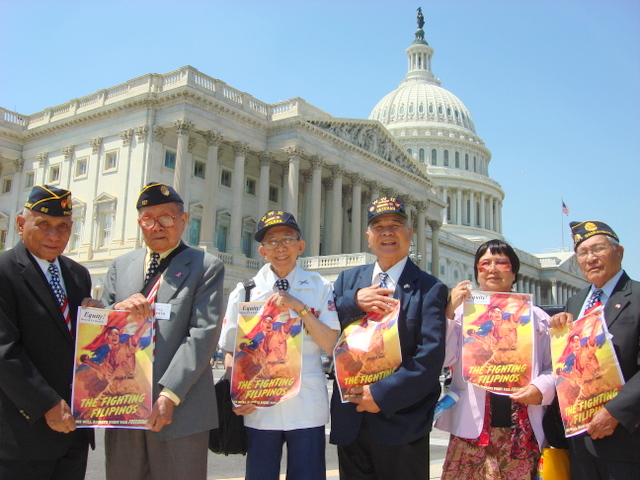
MANILA—The United States has announced a discretionary grant of parole that limits long waiting periods for Filipinos to join their petitioning World War II veteran family members, who are already American citizens or permanent residents.
Such policy by the US Citizenship and Immigration Services enables eligible families to come to the US to become permanent residents and provide care and support for their aging veteran family members or their surviving spouses. Waiting time for visas under this category usually lasts up to 20 years.
“The Filipino World War II Veterans Parole Program honors the thousands of Filipinos who bravely enlisted to fight for the United States during World War II,” USCIS Director León Rodríguez said in a statement.
An estimated 2,000-6,000 Filipino-American World War II veterans are living in the United States today.
“This policy will allow certain Filipino-American family members awaiting immigrant-visa issuance to come to the United States and be with their loved ones,” said Rodriguez.
Grant of parole will be on a case-to-case basis, the USCIS said.
Interested eligible individuals may file their applications within a five-year period starting June 8.
The number of family-sponsored immigrant visas available by country of origin in any given year is limited by statute, a USCIS statement said.
In limited cases, certain eligible relatives will be able to seek parole on their own behalf when their Filipino World War II veteran and his or her spouse are both deceased.
USCIS will review each case individually to determine whether authorizing parole is appropriate.
When each individual arrives at a US port of entry, US Customs and Border Protection will also review each case to determine whether to parole the individual.
Legal authority for this parole policy comes from the Immigration and Nationality Act, which authorizes the Secretary of Homeland Security to parole certain individuals, on a case-by-case basis, for urgent humanitarian reasons or significant public benefit.